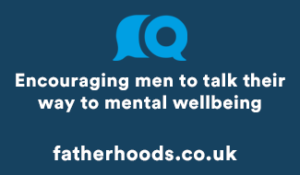Should I stay, or should I go? Anybody who has ever experienced this dilemma will know how difficult it can be to leave a partner whose drinking has become unmanageable. Being in a relationship with an alcoholic is painful, scary, and difficult to handle.
Extricating yourself from a relationship with an alcohol dependent partner is complex: the ties and traps are intricate and the temptation to go back might feel overwhelming.
As dependence increases behaviour deteriorates and the ensuing anxiety can make it extremely difficult to know what to do. By the time leaving becomes the only sensible option most alternatives have been tried – sometimes repeatedly – and the merry go round goes on. Often the drinking partner is:
- Lying about or hiding alcohol use;
- Unable to stop or control their drinking;
- Neglecting responsibilities;
- Behaving erratically and sometimes aggressively – maybe in front of children;
- Manipulating people and situations;
- Promising to quit or regulate but unable to carry it out consistently;
- Unable in general, to sustain a healthy relationship.
The Process of Leaving
Stages
Leaving someone you’ve loved (and maybe still do) tends to take place in stages. Denial exists for you too. Your thoughts of moving out may have been triggered by a dramatic event (domestic abuse, child neglect, police intervention) or by an unpleasant atmosphere leading to frequent arguments, but this is the person that you have loved, supported, and encouraged for so long, and they have slipped into a lifestyle that you could not have imagined possible at the onset of your relationship: it’s become your worst nightmare. After each alarming ‘episode’ contrition will be shown and in the ensuing inquest promises made. At the time these are agonisingly heart felt and you believe them because you want to: the alternatives are too much to bear. For a period of time positive changes might be made but after a while you get to understand that there will always be a next time. It’s time to leave. The resolve is strong, but the process is frightening.
Pre-contemplation: ‘this happens to other people’. A time when you would never contemplate leaving your partner.
Contemplation: ‘it’s happening and maybe I need to go’. The evidence begins to mount up and leaving becomes an option.
Decision: ‘I may not know how I’m going to do it, but I need to need to go’. An event or an accumulation of events provides the evidence you need to make the decision to leave. It’s overwhelming
Action: ‘I’m leaving’. You make the break.
Maintenance: Making sure you stay ‘gone’. Work on personal growth, self-worth and developing the skills necessary to protect yourself and your children. Starting afresh.
Sabotage, Traps And Tips
For some it’s hard to stay away. The ‘pull’ might come from your remorseful spouse who knows how fragile your resolve can be. They may be skilled in the art of manipulation and know precisely which buttons to press. You, however, are just as likely to sabotage your new-found freedom. The monkey on your back will try everything to convince you to give it one more chance…
The children need us to stay together. Separating will destroy them. No, they are better off right now with you apart. They have been exposed to a toxic situation that they don’t need or deserve. You have a wonderful opportunity to get stability back into their lives’
If I love them more, they’ll stop drinking. Not true – their drinking behaviour is their responsibility not yours.
Remember why you left.
It’s my fault that they’re unhappy. No, it’s not. You are not responsible for another’s feelings.
What will our friends think? Your real friends won’t judge you. They just want you to be happy.
How will my partner cope with me leaving? That’s not your responsibility. You’ve given as much as you can. It’s time to look after yourself.
How will I cope? By managing things, a day at a time and not projecting your worries too far into the future.
Co-dependency. If you have a tendency to rely on your partner for validation, happiness and self-worth, or struggle to express your needs within the relationship, you may be somewhere on the co-dependent spectrum. These patterns of behaviour are difficult to recognise and more so to acknowledge as they are likely to have their roots in childhood. They are typically associated with exposure to addiction, abuse and trauma. Co- dependents often struggle to leave unhealthy relationships and for this reason the subject is worthy of note. Much has been written about co-dependency and, if necessary, it can be revisited further down the road to recovery.
Asking for help and setting boundaries
Leaving is a major step but how you move forward will depend on the changes you make and their consolidation. Accessing your GP is a good place to start and breaks your secret: they will connect you to the appropriate local services who in turn will help you design a care plan. It will be imperative to set new and firm boundaries so that your children (whoever they are with) and your ex know exactly where they stand.
Alcohol Services will offer:
Ongoing Support: counselling and or family work.
Introduction to self-help groups: Alanon and Families Anonymous and link in with others who are going through the same as you. Friendship, identification, and discovering that you are not alone will be a huge relief. These groups are free.
A legal expert will offer:
Advice on your rights around the relationship, your children and access.
Mediation if deemed appropriate.
Conclusion
As a legal substance and our society’s current drug of choice, alcohol tends to avoid the negative stigma so strongly associated with other substances. This is unfortunate as its misuse kills more people annually than heroin and all too often has a catastrophic effect on children and the wider family. Adult children of alcoholics are particularly vulnerable to repeating their parent’s patterns.
Extricating yourself from a relationship with an alcohol dependent partner is complex: the ties and traps are intricate and the temptation to go back might feel overwhelming. Denial, fear, guilt and shame will conspire to keep you in the mire and undermine your every step, but keep going because your other options are horribly limited. Making the break will be the foundation of your own recovery, and a chance to start afresh. After a while you will have a different perspective and increased energy to deal with the issues arising and in time you will decide whether to keep the door open or exit the relationship for good.
The realisation that your alcoholic partner is responsible for themselves allows you to concentrate on what’s best for you and – if you have them with you – your children. Removing yourself from the toxicity of the relationship is your passport to freedom and in all likelihood the best move you will ever make.
Useful Resources
ADFAM -If you are affected by a family member’s drug or alcohol use you will find lots of resources on their website including a map of local family support groups.
You might be interested to read ‘My Ex Is Drinking To Much When He Is Looking After The Kids’.
Posted on January 19, 2021














